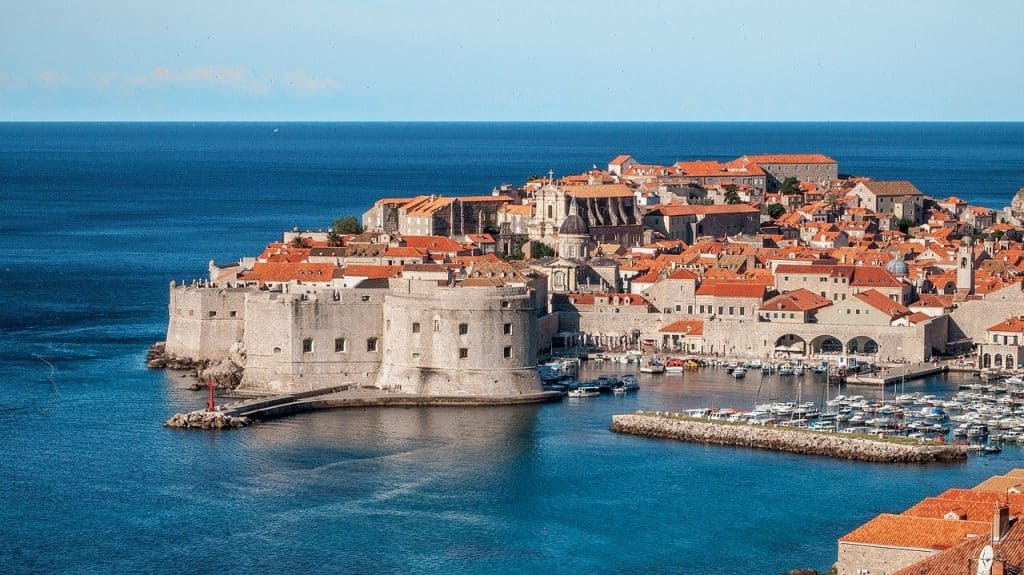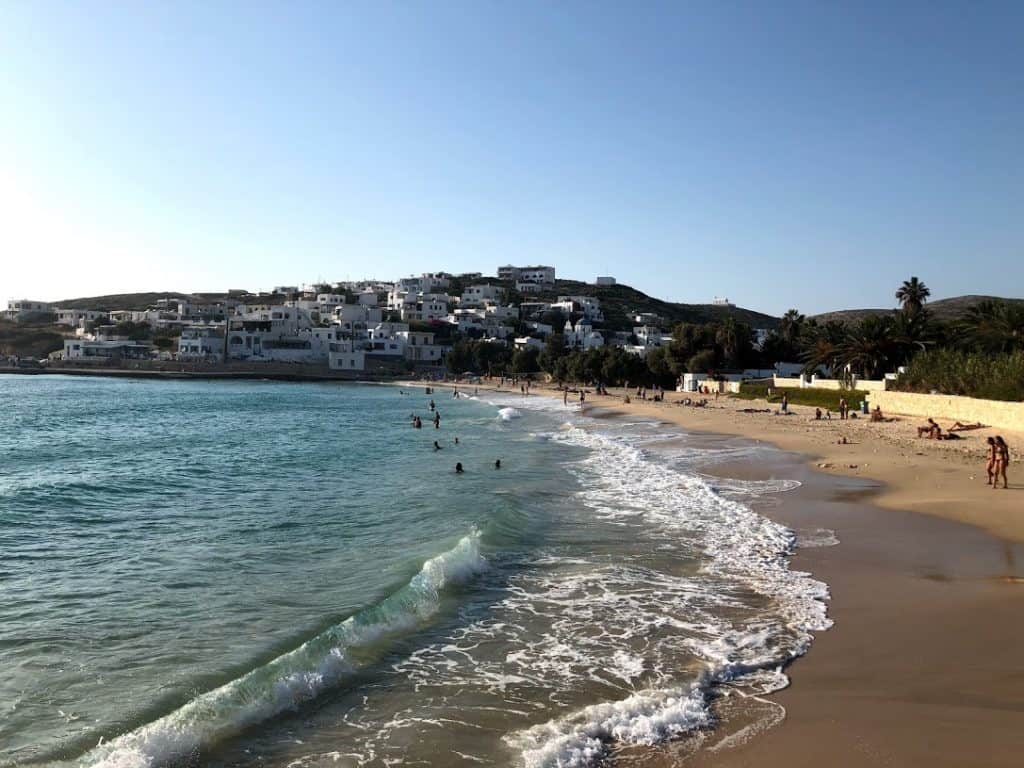Which European countries are open for vaccinated (and unvaccinated) travelers?
Vaccinated travelers are now a precious asset, despite the fact that vaccines are not a reality in most of the world yet. Only 29% of the global population has been vaccinated with at least one dose (on the 6th of August), and there is a huge imbalance among countries or continents (only 1.1% of people in low-income countries have been vaccinated with at least one dose). While Asia has vaccinated 30% of its population, South America has done 45%, Europe as a whole has reached 50% and North America (Mexico included) has immunized 49%.
As the vaccination in the European Union (60%) and the US (58%) seem to have a good rhythm, tourism authorities have worked hard to ignite the European summer season. Vaccinated and unvaccinated travelers are welcome. However, there are some measures to pay attention to.
When does the EU allow non-essential travel?
The European Union relies on the Green Digital Certificate as a sort of “vaccine passport” to stimulate tourists to travel internationally in the region. This should be proof that the traveler is vaccinated, immune (because already had COVID-19), or have a negative test taken 72 hours prior to departure/arrival. The Green Digital Certificate was rolled out at the pan-European level on July 1st.
The most favorite beach-and-sun destinations, like the Mediterranean countries, are very much in line with the position of the European Commission to ease restrictions for the summer campaign. Until mid-May, most of the European countries were closed for non-essential international travel, but that rule started to be replaced by a more flexible one, allowing the entrance of travelers even though with some conditions. However, travelers from countries labeled as of “high risk” might be banned from entry in some destinations.
We made a selection below of the best European countries to travel to in summer, even for unvaccinated travelers. Keep in mind that even if tourists are welcome, Covid protocols are still in place and travelers should be aware that they will have to fill out a Passenger Locator Form provided by the destination’s health authorities, besides following safety vacation rules.
European countries to travel without quarantine
In the European Union, the average rule was to forbid non-essential travel until mid-May or June, but some governments started to act in advance. The Mediterranean countries, mostly Spain, Greece and Italy, rely heavily on tourism and the industry is eager to recover. While Europe (including out of the European Union countries) has vaccinated less than a quarter of its population, tourism authorities have already thought of ways to welcome, safely, visitors from their European neighbors and the United States. Out of the Mediterranean area, Portugal is likely to have a successful summer campaign, as the country has one of the best metrics in controlling the pandemic.
Besides, it is worth noting that citizens from some countries that have a “positive epidemiological assessment” have been allowed to enter the EU even for “non-essential reasons”. The “green light” countries are Australia, China, South Korea, New Zealand, Ruanda, Singapore, Thailand and special autonomous regions – Hong Kong and Macau.
Cyprus, the first to reopen for tourists

Cyprus reopened for travelers on May 10th, becoming the first European country to start the summer season. The country has the best vaccination rate in the Mediterranean area: 44% of the population were already immunized with at least one dose on June 2nd.
Cyprus publishes a weekly list of countries that are “green”, “amber” and “red”, regarding their pandemic state. A number of countries are not included in the green, amber, and red lists. These are the “grey countries”, which means they have some sort of “special rules”.
Only eight countries are on the green list, but Cyprus already allows the entry of vaccinated travelers, no matter which country they come from. The vaccine must be one of these: Pfizer, Moderna, Janssen, AstraZeneca, Sputnik or Sinopharm.
For unvaccinated travelers, Cyprus applies the “green”, “amber”, “red” and “grey” filter:
- “Green travelers” must only fill in a form, the “Cyprus Flight Pass”, within 24 hours prior to departure.
- “Amber travelers”, like the ones from the UK, US, Spain, Germany, or Portugal, must fill the Cyprus Flight Pass form and show a negative PCR test carried out within 72 hours prior to arrival.
- “Red travelers”, like the ones from France, Belgium, or Canada, must have taken a PCR test prior to arrival and then take a second one upon arrival (test taken at the passenger’s expense). If both tests are negative, there is no need to quarantine. If the traveler only takes the test upon arrival, quarantine for 72-hours is compulsory and then a second test must be taken.
- “Grey travelers”, like the ones from Brazil, South Africa, or India, must provide a negative PCR test plus remain in quarantine from 7 to 14 days.
Requirements to travel to Greece in summer
Greece was the first European country to push for a more open policy for tourism in summer 2021. The obvious reason is the weight of tourism in the Greek economy: nearly a quarter of the GDP relies on travel and hospitality and employs 16% of the population. So the Greek government was fast in announcing the country has opened its air, land and sea borders for tourism, although with some restrictions.
To visit Greece, all travelers are required to show a PLF (Passenger Location Form) and one of the following at entry:
- Proof of full vaccination, either the EU Digital Covid Certificate or another certificate issued by a certified authority from a third country. The traveler should be fully vaccinated at least 14 days before departure.
- A negative COVID-19 test result from a laboratory; the test must be taken up to 72 hours before entry in Greece.
- A negative antigen (rapid) result from a laboratory; the test must be taken up to 48hours before entry.
- A certificate of recovery from Covid-19 issued by a public authority or a certified laboratory.
- Proof that the traveller was tested positive with COVID-19 in the past 2 to 9 months. This can be proved either by presenting a positive PCR molecular or an antigen test result performed by an authorized laboratory or a medical certificate confirming that the holder was tested positive with SARS-CoV-2 virus infection.
If the traveler is going to the Greek islands, an extra document is needed: a Health Statement that has to be shown when embarking on a ferry. Passengers need one health statement per each ferry they embark on.
However, not everyone is allowed to enter Greece. As of today, only the EU & Schengen Area, USA, UK, and other 29 countries are eligible if they comply with the requisites above. In general, travelers from Latin America, Africa and part of Asia are banned.
Random rapid testing might also be taken upon arrival; Travelers that show the EU Digital Covid Certificate are exempt from the random testing. If the result of this test is positive, passengers have to quarantine for 7 days, with expenses paid by the Greek government.
Greece accepts a wide range of vaccines: Pfizer BioNtech, Moderna, AstraZeneca/Oxford, Novavax, Johnson + Johnson/Janssen, Sinovac Biotech, Gamaleya (Sputnik), Cansino Biologics, Sinopharm.
To have all the information about traveling to Greece in summer 2021, go here.
Italy keeps travelers from Brazil and India banned
The Italian government has decided to open for tourism on the 16th May, but not for everyone. Visitors from Europe, UK, and Israel could enter the country and enjoy the Italian beaches and beauties freely (but following health protocols), without the need to quarantine.
First, all travelers, no matter their origin, have to fill in the EU Digital Passenger Locator Form.
And then travelers must comply with only one of these options:
- Prove they are fully vaccinated;
- Have a negative PCR or antigen test taken in the previous 48 hours;
- Prove they recovered from having had COVID-19 in the previous 6 months.
Some travelers, coming from out of the European Union, might be subjected to quarantine as they don’t have the EU Digital Covid Certificate. This is the case for travelers from the UK, that have to be both tested and to quarantine for 5 days. Also, other specific requirements might be put in place. To check them out, click here.
Visitors from high-risk countries, like Brazil, India, Sri Lanka or Bangladesh, have entrance forbidden or with heavy restrictions.
Portugal keeps some travel restrictions, including Brazil
Portugal is one of the most strict countries regarding entry from third countries. Portugal keeps its rules of not allowing non-essential travel for some countries, like Brazil, India, Nepal, and South Africa. It is open for tourism from EU & Schengen area countries plus other 26 nations, like the United Kingdom, the US, China, and Japan.
All travelers allowed to enter Portugal must fill in a Passenger Locator Form. This form can be filled before departure or on board.
Travelers from authorised countries (from inside or outside the EU & Schengen area) are subject to a pre-departure negative COVID-19 test (PCR or antigen test). However, travelers that show the EU Digital Covid Certificate, are exempt from having the test.
Check the whole information about traveling to Portugal in summer 2021, here.
Spain makes it easy for travelers
The summer season in Spain officially started on May 24th, when the country opened for international tourism, from the EU and third countries. First, Spain was open only for 10 “green countries” – the UK, Australia, China, South Korea, New Zealand, Rwanda, Singapore, Israel, Japan, and Thailand.
Since June 7th, Spain welcomes tourists from almost anywhere in the world if they are fully vaccinated or if they show a negative COVID test on arrival. The vaccine, however, must have been approved by the European Medicines Agency (EMA) or the World Health Organization (WHO). Travelers with the EU Digital Covid Certificate
Additionally, all travelers, from inside or outside the EU & Schengen area, are required to fill in the Spanish Passenger Locator Form whether they are going to mainland or to the Spanish islands. This form can also be filled on mobile through the Android or iOS app. Just search for “Spain Travel Health” on Google Play and App Store.
As in many countries, high-risk travelers have a difficult time crossing borders, and in Spain it’s not different. The list of high-risk countries and requirements to travel to Spain from these located is updated every two-three weeks. You can check it here. These nationals may be required to quarantine, but in general it’s a matter of showing a vaccination certificate and/or testing.
The only countries that still have special requirements are Brazil and South Africa.
Which restrictions do Brazilians have to travel to Spain?
Brazilians are not allowed to enter Spain for tourism or for any other non-essential reason, as of today. Brazilians that have Spanish nationality or that live in Spain can enter the country, but besides being vaccinated, they should have a 10-day quarantine. Unmarried partners or family members from Brazilians living in Spain are not allowed to visit either. These rules might change every two-three weeks. For more information specifically about Brazilians traveling to Spain, click here.
Which Covid vaccines are valid to enter Spain?
Spain accepts certificates for vaccines approved by the EMA and WHO. The vaccines currently authorized by the EMA are the ones by BioNTech/Pzifer, Moderna, AstraZeneca, and Janssen. As for mid-May, the vaccines approved by the WHO, in addition to the EMA’s ones, are Covishield (India), Sinopharm (China), and Sinovac (also known as “Coronavac”). Russian vaccine Sputnik V is in the queue to be approved or authorized by EMA and WHO.
Croatia reopens for EU and third-countries

One of the nicest Mediterranean countries for travelers that love the sea, Croatia opened for tourism in May. Fully vaccinated travelers, at least 14 days prior to arrival, are allowed to enter the country without the need to quarantine. Also, travelers that were infected with the coronavirus 180 days prior to arrival and have a medical certificate confirming their recovery, can enter and no quarantine is required.
Travelers from “green light” countries don’t even need to show a negative PCR test.
Unvaccinated travelers can still spend summer in Croatia if they show a negative PCR or antigen test upon arrival. The test must be taken within 48 hours prior to departure. An additional requirement is to prove having paid accommodation in Croatia (not only booked). More information from the Croatian government, here.
France reopens in June
France has had one of the toughest nationwide curfew: from 7pm to 6am until the end of May. Since the 9th of June, France welcomes fully vaccinated tourists, if they have been jabbed with Pfizer/BioNTech, Moderna, AstraZeneca and Janssen.
For unvaccinated travelers, the main requirement is to hold a pre-departure negative COVID-19 test taken within 72 hours prior to arrival. The test can be a PCR or antigen. The French territories overseas have specific conditions. Check conditions to travel to France in summer 2021 here.
The novelty this year is regarding travelers from the United States. The French government is preparing special measures to welcome vaccinated American tourists. More information from the French government, here.
The UK’s Green List
The British government has already made public their “green”, “amber” and “red” list of destinations, according to their epidemiologic risk. Green destinations exempt Britons from quarantine when returning home (although a test is still required). If going to amber or red destinations, British tourists have to quarantine when returning home at the cost of 1.750£.
The green list issued every two weeks and for now has 11 countries and islands to where Britons are allowed to go after May 17th. These destinations are Australia, New Zealand, Israel, Singapore, Brunei, Iceland, Falkland Islands, Gibraltar, Faroe Islands, South Georgia Islands, St Helena, Ascension & Tristan da Cunha, and Malvinas. Portugal was moved from green list to amber list on June 8th.
To see the updated list of green, amber, or red countries according to the UK government, click here.
This article is being regularly updated as news changes week after week. Original sources to the news are linked in each country’s section.
Search Skyscanner flights, hotels, and car rental
FAQs about European countries to travel in 2021
Can I travel to Europe in 2021?
Travelers are welcome in Europe for the 2021 summer if they are vaccinated with any of the vaccines approved by the European Medicines Agency (EMA) at least two weeks before departure or if they prove to be Covid free with a negative test taken within 72 hours prior to departure. However, some travelers from high-risk countries, like India or Brazil, might have difficulty entering Europe, depending on the country. To check the entry situation in each one of the European countries, go to the Re-open EU website.
Which COVID-19 vaccines are accepted to enter in Europe in 2021?
The vaccines for COVID-19 accepted in the European Union are the ones approved by the European Medicines Agency (EMA): Janssen, AstraZeneca, Pfizer and Moderna. However, each country might decide if extending the acceptance to other vaccines, especially if they “have completed the World Health Organization emergency use listening process”, according to a European Commission statement. The government of Cyprus included the Russian vaccine, Sputnik, in their accepted list. Greece has added Sinovac Biotech, Gamaleya (Sputnik), Cansino Biologics, Sinopharm, and Novavax. Spain accepts all the vaccines confirmed by the EMA and WHO as safe, like Pfizer, Moderna, Janssen, Astrazeneca, and Sinovac/Coronavac.
What are the requirements to travel to Europe in summer 2021?
General requirements to enter most of the European countries are being vaccinated, holding a negative test (either PCR/TMA or antigen), or attesting to being immune to the coronavirus with a medical certification. Some countries might include quarantine depending on the traveler’s origin, and some countries might even forbid entry from high-risk zones. Besides, travelers should fill in a “travel health form” to be handed over when landing. Each country has its own form.
What is the EU traffic light system regarding the epidemiological risk of countries?
The European Union has a “coronavirus traffic light system” that divides European countries in green, amber, red and gray zones, according to the state of the pandemic. Nearly all the countries are amber or red as of the 13th of May. The Covid traffic light map can be seen here.
How does the EU digital COVID certificate work?
Starting July 1st, all European Union countries will be accepting the digital certificates as proof that the traveler has been vaccinated, has tested negative, or has recovered from COVID in the last 180 days. The traveler will hold a QR code that will be read upon arrival. However, each EU country is responsible for the definition of its own entry requirements and rules, which are not standardized throughout the territory. The digital certificate should facilitate entry in airports, train stations, and ports.





